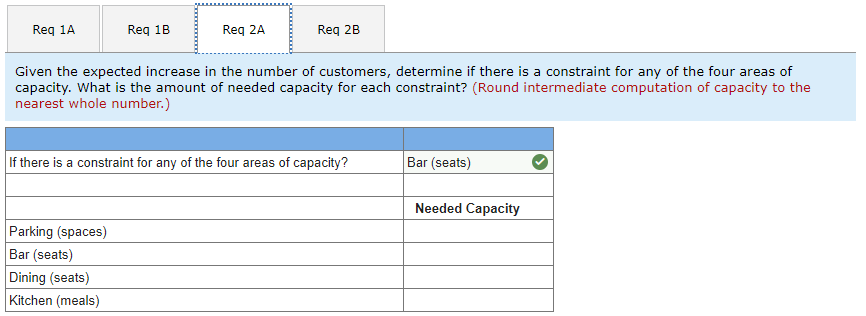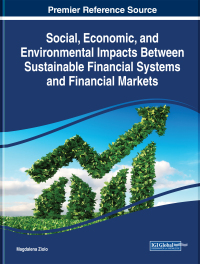Question
Taylors is a popular restaurant that offers customers a large dining room and comfortable bar area. Taylor Henry, the owner and manager of the restaurant,
Taylors is a popular restaurant that offers customers a large dining room and comfortable bar area. Taylor Henry, the owner and manager of the restaurant, has seen the number of patrons increase steadily over the last two years and is considering whether and when she will have to expand its available capacity. The restaurant occupies a large home, and all the space in the building is now used for dining, the bar, and kitchen, but space is available on the property to expand the restaurant. The restaurant is open from 6 p.m. to 10 p.m. each night (except Monday) and, on average, has 26 customers enter the bar and 60 enter the dining room at the beginning of each of those hours. Taylor has noticed the trends over the last 2 years and expects that within about 4 years, the number of bar customers will increase by 50% and the dining customers will increase by 20%. Taylor is worried that the restaurant will be not be able to handle the increase and has asked you to study its capacity. In your study, you consider four areas of capacity: the parking lot (which has 90 spaces), the bar (64 seats), the dining room (110 seats), and the kitchen. The kitchen is well-staffed and can prepare any meal on the menu in an average of 12 minutes per meal. The kitchen, when fully staffed, is able to have up to 20 meals in preparation at a time, or 100 meals per hour (60 minute/12 minute 20 meals). To assess the capacity of the restaurant, you obtain the additional information:
- Diners typically come to the restaurant by car, with an average of 3 persons per car, while bar patrons arrive with an average of 1.5 persons per car.
- Diners, on average, occupy a table for an hour, while bar customers usually stay for an average of 2 hours.
- Due to fire regulations, all bar customers must be seated.
- The bar customer typically orders one drink per hour at an average of $8 per drink; the dining room customer orders a meal with an average price of $21; the restaurants cost per drink is $2, and the direct costs for meal preparation are $4.
Required: 1-a. Given the current number of customers per hour, what is the amount of excess capacity in the bar, dining room, parking lot, and kitchen?
1-b. Calculate the expected total throughput margin for the restaurant per day, and month (assuming a 26-day month).
2-a. Given the expected increase in the number of customers, determine if there is a constraint for any of the four areas of capacity. What is the amount of needed capacity for each constraint?
2-b. If there is a constraint, reduce the demand on the constraint so that the restaurant is at full capacity (assume some customers would have to be turned away). Calculate the expected total throughput margin for the restaurant per day, and month (assuming a 26-day month).




Reg 1A Reg 1B Reg 2A Req 2B Given the current number of customers per hour, what is the amount of excess capacity in the bar, dining room, parking lot, and kitchen? (Round intermediate computation of capacity to the nearest whole number.) Parking (spaces) Bar (seats) Dining (seats) Kitchen (meals) Excess Capacity 35 12 50 40 Complete this question by entering your answers in the tabs below. Req 1A Reg 1B Reg 2A Reg 2B Calculate the expected total throughput margin for the restaurant per day, and month (assuming a 26-day month). (Round intermediate computation of capacity to the nearest whole number.) Per Day 5.172 Per Month $ 134,472 Total throughput margin $ Reg 1A Reg 1B Reg 2A Req 2B Given the expected increase in the number of customers, determine if there is a constraint for any of the four areas of capacity. What is the amount of needed capacity for each constraint? (Round intermediate computation of capacity to the nearest whole number.) If there is a constraint for any of the four areas of capacity? Bar (seats) Needed Capacity Parking (spaces) Bar (seats) Dining (seats) Kitchen (meals) Answer is not complete. Complete this question by entering your answers in the tabs below. Req 1A Reg 1B Req 2A Req 2B If there is a constraint, reduce the demand on the constraint so that the restaurant is at full capacity (assume some customers would have to be turned away). Calculate the expected total throughput margin for the restaurant per day, and month (assuming a 26-day month). (Round intermediate computation of capacity to the nearest whole number.) Per Day Per Month Total throughput margin Reg 1A Reg 1B Reg 2A Req 2B Given the current number of customers per hour, what is the amount of excess capacity in the bar, dining room, parking lot, and kitchen? (Round intermediate computation of capacity to the nearest whole number.) Parking (spaces) Bar (seats) Dining (seats) Kitchen (meals) Excess Capacity 35 12 50 40 Complete this question by entering your answers in the tabs below. Req 1A Reg 1B Reg 2A Reg 2B Calculate the expected total throughput margin for the restaurant per day, and month (assuming a 26-day month). (Round intermediate computation of capacity to the nearest whole number.) Per Day 5.172 Per Month $ 134,472 Total throughput margin $ Reg 1A Reg 1B Reg 2A Req 2B Given the expected increase in the number of customers, determine if there is a constraint for any of the four areas of capacity. What is the amount of needed capacity for each constraint? (Round intermediate computation of capacity to the nearest whole number.) If there is a constraint for any of the four areas of capacity? Bar (seats) Needed Capacity Parking (spaces) Bar (seats) Dining (seats) Kitchen (meals) Answer is not complete. Complete this question by entering your answers in the tabs below. Req 1A Reg 1B Req 2A Req 2B If there is a constraint, reduce the demand on the constraint so that the restaurant is at full capacity (assume some customers would have to be turned away). Calculate the expected total throughput margin for the restaurant per day, and month (assuming a 26-day month). (Round intermediate computation of capacity to the nearest whole number.) Per Day Per Month Total throughput margin
Step by Step Solution
There are 3 Steps involved in it
Step: 1

Get Instant Access to Expert-Tailored Solutions
See step-by-step solutions with expert insights and AI powered tools for academic success
Step: 2

Step: 3

Ace Your Homework with AI
Get the answers you need in no time with our AI-driven, step-by-step assistance
Get Started


